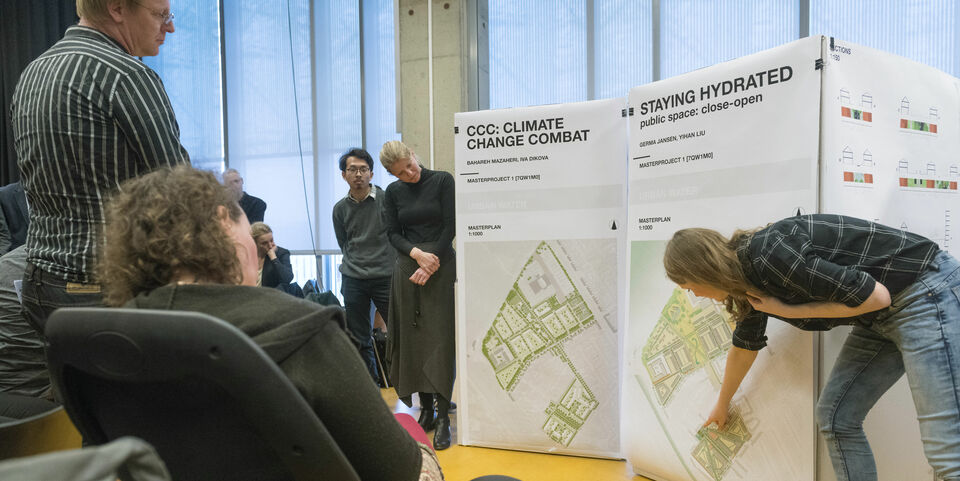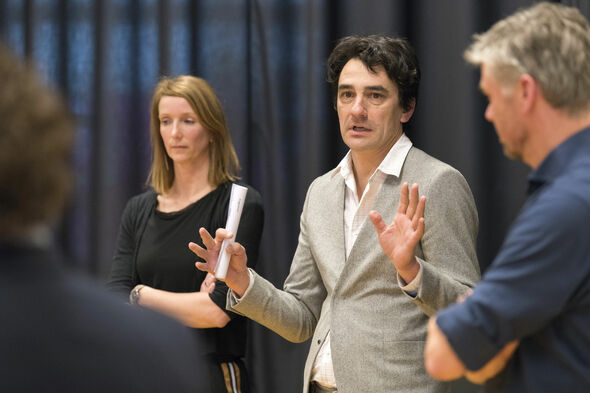Making Eindhoven climate-robust
How do you make a city like Eindhoven more sustainable and climate-robust? The answer to this question may well be found in the OntwerpLab (DesignLab), the collaborative alliance in which De Dommel water board, the municipality of Eindhoven, and TU/e's Department of the Built Environment will be uniting their strengths over the next three years. Marcel Musch, lecturer and researcher at Built Environment, reveals the benefits.
For ten years now, various parties in the Netherlands have been actively paying attention to the increasing flooding caused by the changing climate. But to date, says Marcel Musch, this discussion has focused chiefly on the dikes and the coastal provinces. The floods in Eindhoven in June 2016, the consequence of exceptionally heavy rainfalls were, he believes, among the events that increased awareness that at other places too greater account must be taken of the consequences of climate change.
Master's students following the architecture, building and planning track ‘Urbanism’ set to work last year on a project whose ultimate aim was to view water not as a nuisance, but to convert the problem it poses into something positive.
"They were assigned the task of revising existing designs for Eindhoven's Celsius and Vredeoord neighborhoods with regard to water management," says Musch. "This involved needing to produce a checklist. The list includes various points that urban planners need to take into account when dealing with water management in a neighborhood."
The Master's students have now completed the project, but the cooperation between the municipality ofEindhoven, De Dommel water board, and the Department of the Built Environment, for which an agreement was signed on February 20, and the founding of the OntwerpLab, has just started, says Musch. “By getting all the parties together to think about the urban problems that climate change causes, we are creating an efficient way of sharing knowledge.”
The cooperative alliance will be active for a period of three years, and will likely be extended to other departments.



Discussion